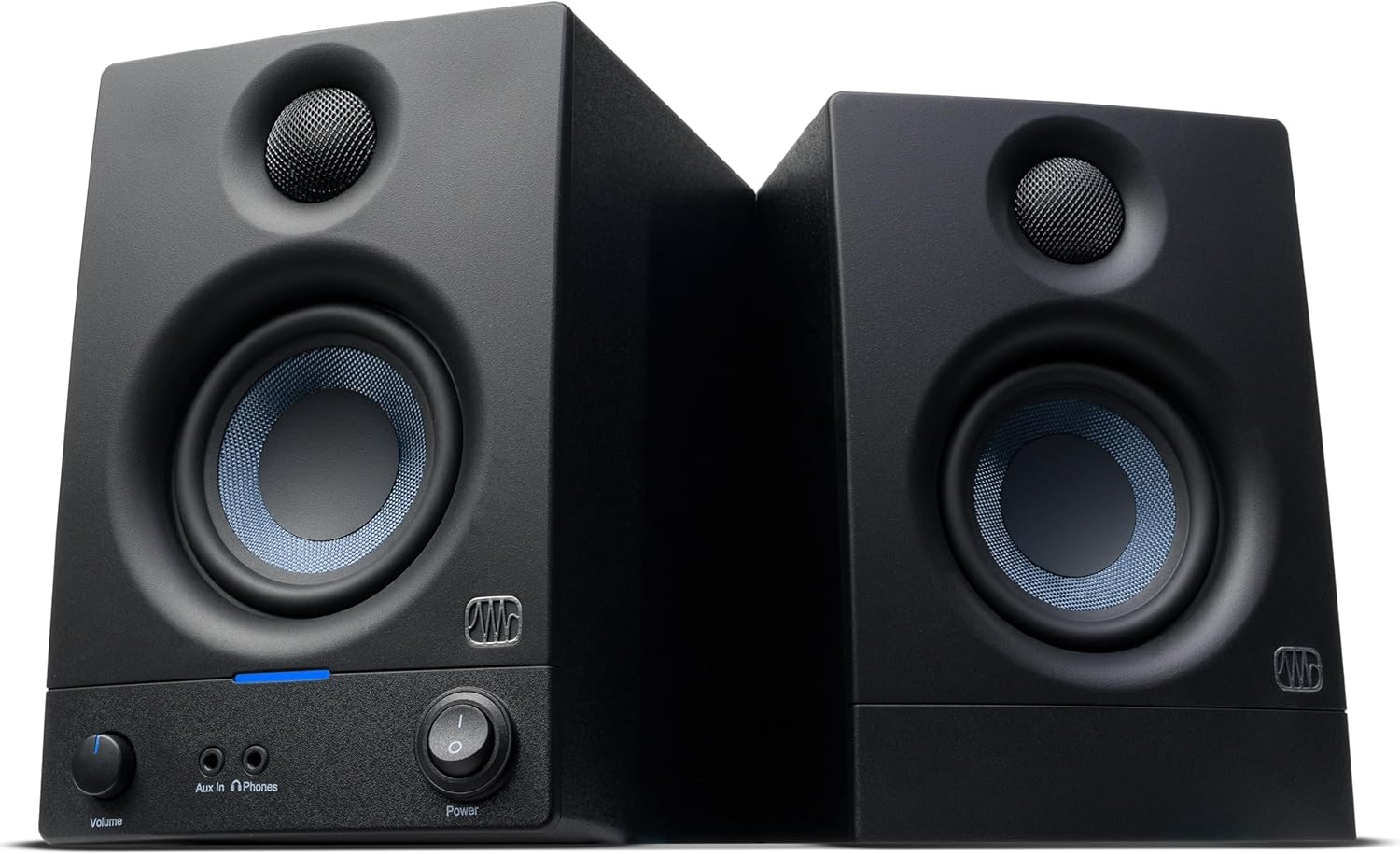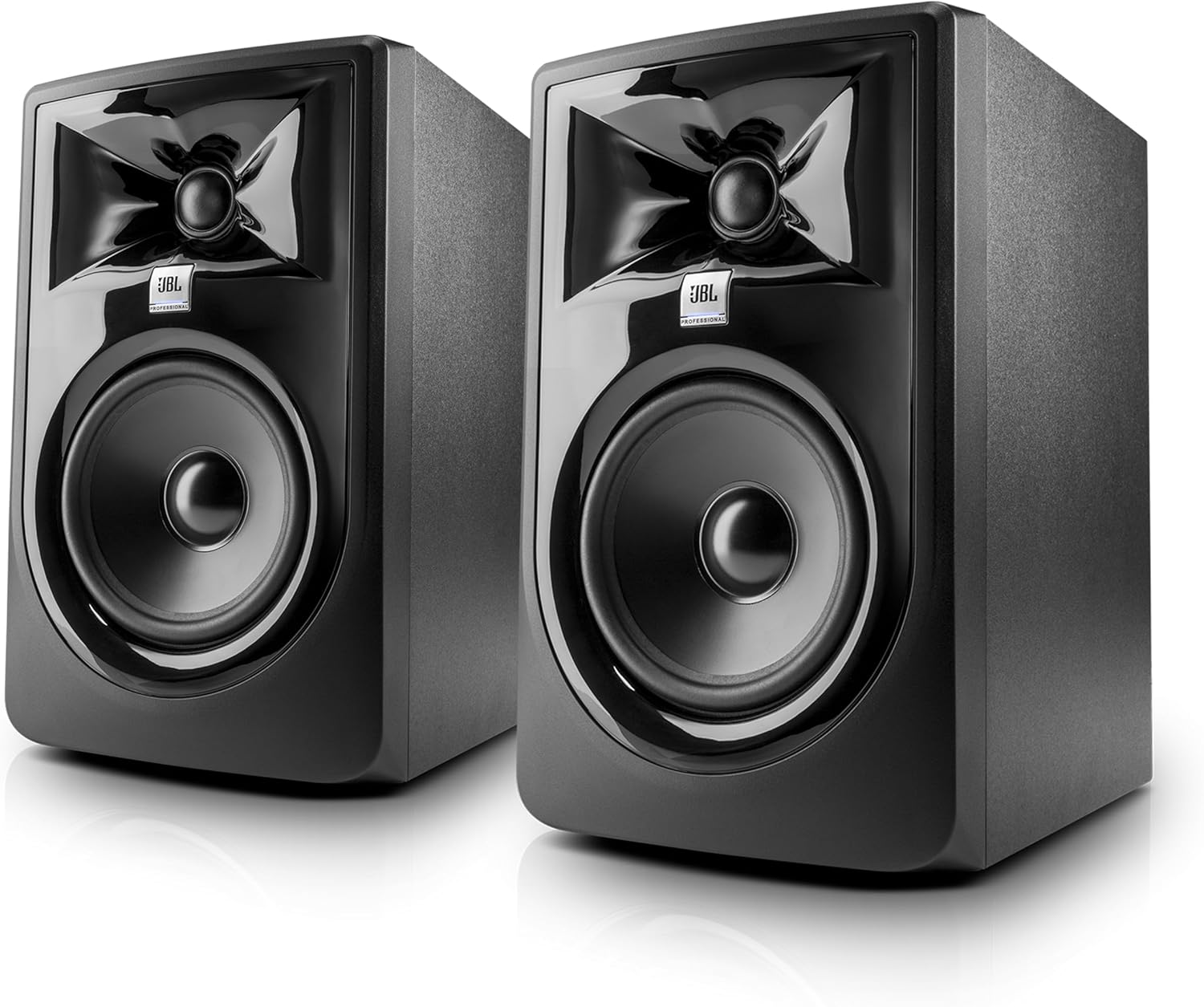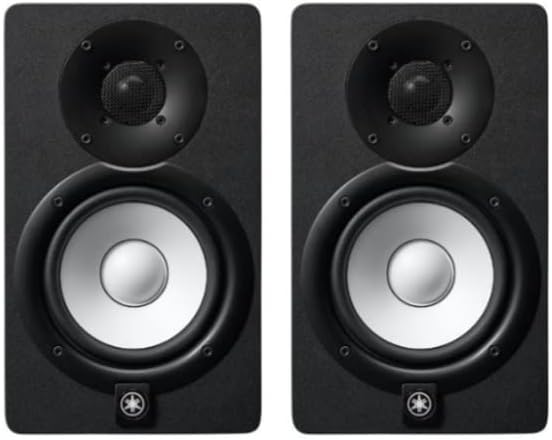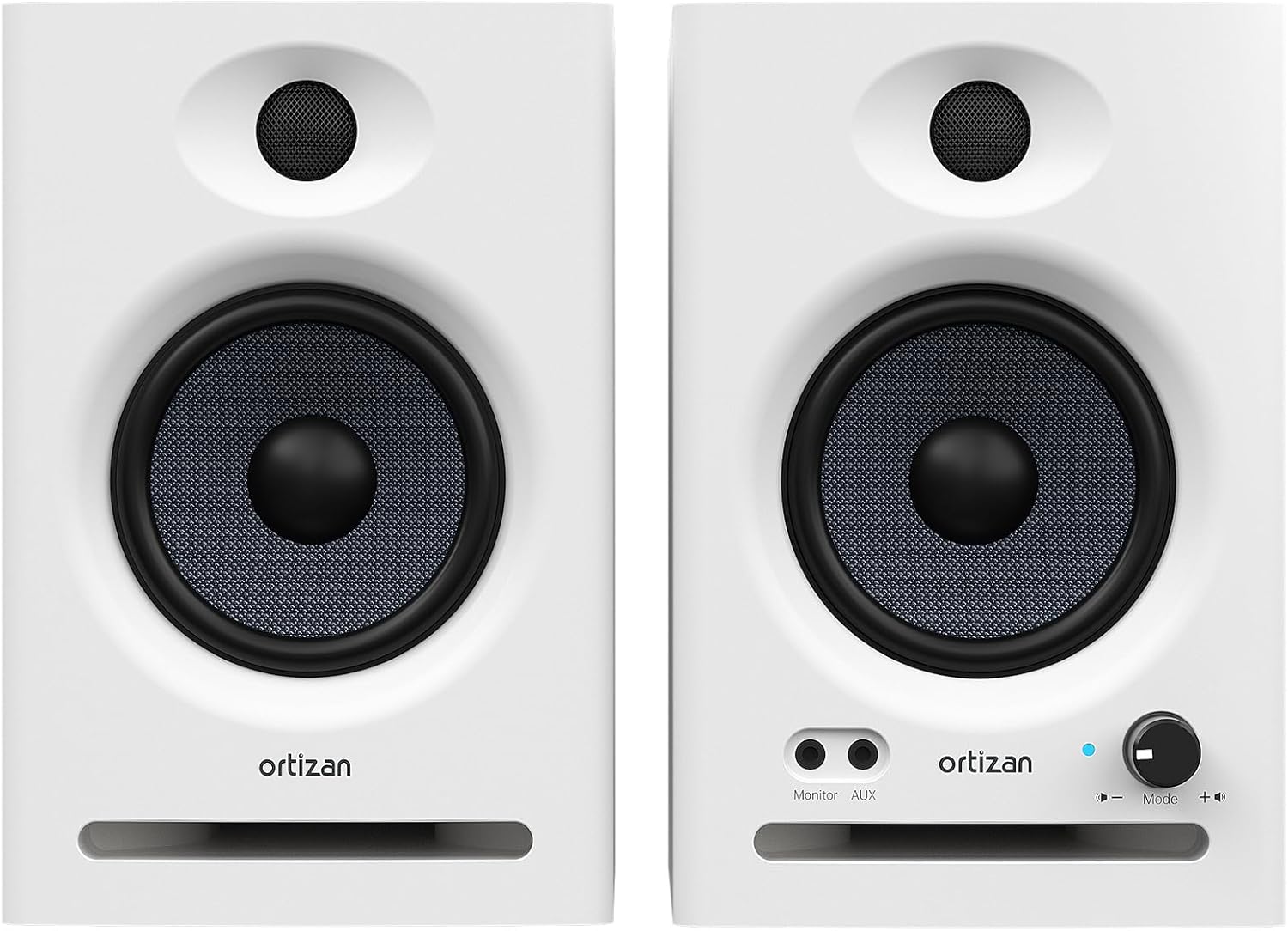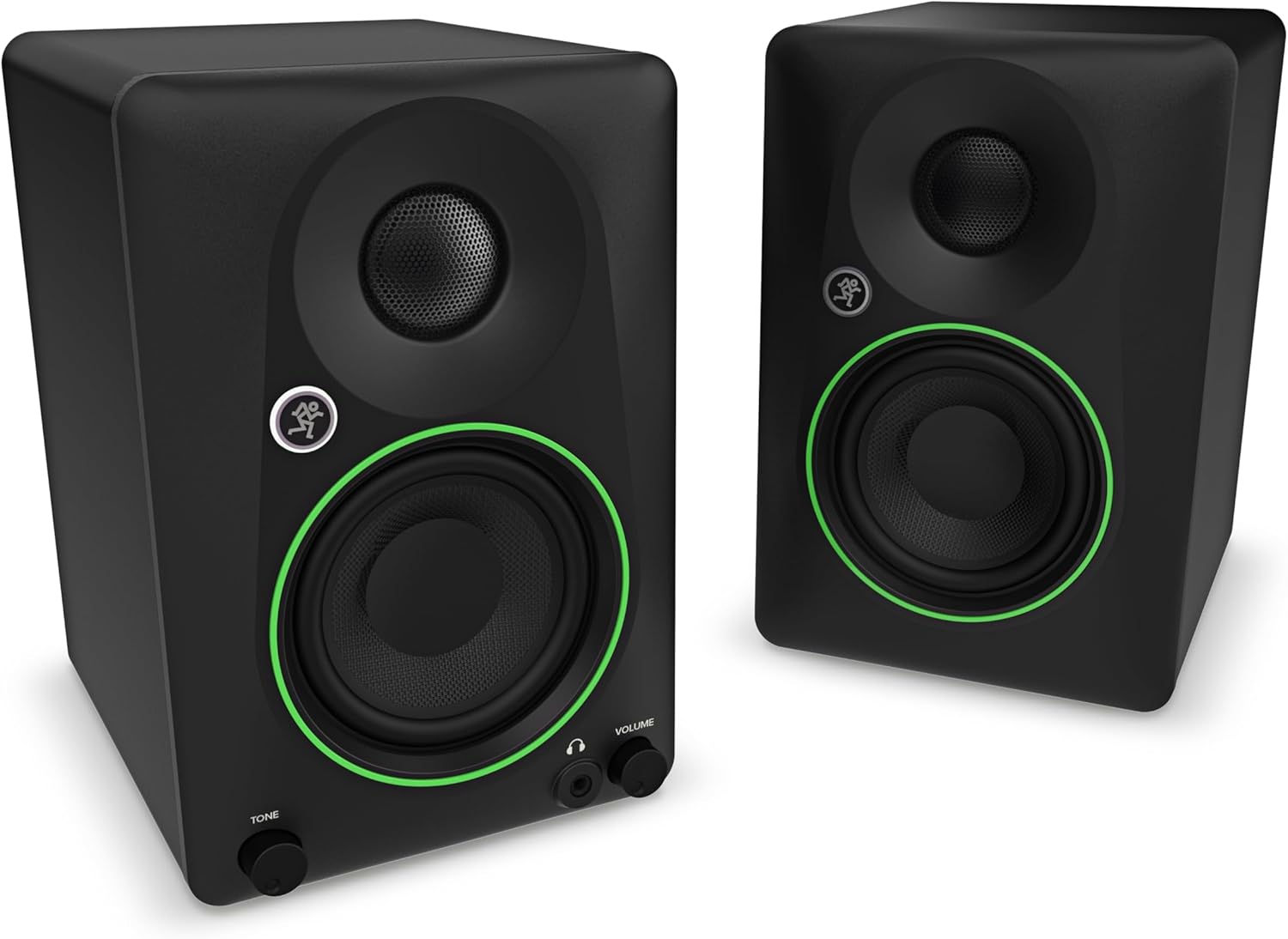Here’s an overview of the Best Studio Monitors that we’ll explore today:
Studio monitors are an essential tool for music producers, podcasters, and multimedia creators who demand accurate sound reproduction. Unlike consumer-grade speakers, studio monitors are designed to deliver a flat frequency response, ensuring that the audio you hear is as close to the original recording as possible. In this article, we tested and compared five popular studio monitors across a range of price points ($69.99 to $399.98). Our methodology included evaluating audio quality, build, connectivity, and overall value for money. The products selected represent a mix of budget-friendly and premium options from trusted brands such as YAMAHA, JBL, PreSonus, Ortizan, and Mackie.
1. PreSonus Eris 3.5 Studio Monitors
- Brand: PreSonus
- Manufacturer: PreSonus
The PreSonus Eris 3.5 is a compact yet powerful studio monitor designed for near-field music production, multimedia use, and hi-fi audio enthusiasts. With 50 watts of Class AB dual amplification, these monitors deliver a surprising amount of volume for their size. They feature woven-composite woofers for tight bass response and silk-dome tweeters for clear highs. The inclusion of high- and low-frequency tuning controls allows users to fine-tune the audio output based on their room setup, making them versatile for various environments.
In testing, the Eris 3.5 impressed with its accurate sound reproduction, especially in the mids and highs. While the bass response is solid for its size, it may not satisfy users who require deep low-end frequencies for genres like EDM or hip-hop. The connectivity options are robust, including RCA, TRS, and aux inputs, as well as a front-panel headphone output for quick referencing. These monitors are ideal for beginners or those working in small spaces, but they may lack the power and depth required for professional studios.
Pros
- Compact design with excellent sound clarity
- Customizable tuning controls for room optimization
- Affordable price point
Cons
- Limited low-end response
- Not suitable for large studio setups
2. (2) JBL 305P MkII 5″ 2-Way Active Powered Studio Reference Monitors Speakers
- Brand: JBL
- Manufacturer: JBL
The JBL 305P MkII is a high-quality studio monitor designed for professionals who demand precision and clarity. Its standout feature is the patented Image Control Waveguide, which provides an expansive sweet spot and excellent stereo imaging. With 112 watts of power, these monitors offer a dynamic range and deep bass that is ideal for music production, podcasting, and cinematic sound design. The 5-inch woofer and Slip Stream port combine to deliver impressive low-end performance.
During our tests, the JBL 305P MkII excelled in reproducing intricate details across the frequency spectrum. The Boundary EQ and HF Trim controls allow users to adjust the sound to suit their room acoustics, making it a versatile choice for various setups. However, its higher price point and larger size may not appeal to casual users or those with limited space. These monitors are best suited for professionals and serious hobbyists who value precision and reliability.
Pros
- Exceptional stereo imaging and wide sweet spot
- Powerful and detailed low-end performance
- Customizable EQ controls for room tuning
Cons
- Higher price point
- Bulky design may not fit smaller spaces
3. YAMAHA Hs5 Powered Studio Monitor
- Brand: YAMAHA
- Manufacturer: YAMAHA
The YAMAHA Hs5 is a premium studio monitor known for its neutral and uncolored sound reproduction. Featuring a bi-amplified design with a 5-inch woofer and 1-inch dome tweeter, the Hs5 delivers a clean and accurate sound signature. With a frequency response of 54 Hz to 30 kHz, it emphasizes sonic purity, making it a favorite among professionals who require precise audio monitoring.
In real-world use, the Hs5 demonstrated exceptional clarity and balance, particularly in the mids and highs. The bass response is tight but may lack the depth required for bass-heavy genres. The XLR and TRS inputs ensure compatibility with professional audio equipment. While the $399.98 price tag places it at the premium end of this list, its build quality and performance justify the investment for serious producers and engineers.
Pros
- Highly accurate and uncolored sound reproduction
- Build quality is robust and professional
- Wide frequency range with excellent clarity
Cons
- Expensive compared to other models
- Limited low-end depth for bass-heavy genres
4. Ortizan C7 Dual-Mode 2.0 Studio Monitors
- Brand: Ortizan
- Manufacturer: Ortizan
The Ortizan C7 is a budget-friendly studio monitor that offers surprising versatility for its price. With a 3.5-inch carbon fiber woofer and a 0.75-inch silk dome tweeter, it delivers clear and balanced sound. The inclusion of Bluetooth 5.3 connectivity makes it suitable for casual listening, while the TRS balanced input supports more professional use cases.
While the sound quality is decent for the price, the Ortizan C7 struggles to compete with higher-end models in terms of detail and accuracy. Its bass response is adequate, but the mids can feel slightly recessed. The build quality is solid, and its compact design is ideal for small setups. Overall, this is a great choice for beginners or casual users who want a versatile and affordable option.
Pros
- Affordable price with versatile connectivity options
- Compact and lightweight design
- Bluetooth 5.3 for wireless playback
Cons
- Lacks detail and accuracy compared to premium models
- Limited bass performance
5. Mackie CR3.5 3.5-inch Powered Studio Monitors
- Brand: Mackie
- Manufacturer: Mackie
The Mackie CR3.5 is an entry-level studio monitor designed for home studios, multimedia setups, and casual listening. With a 3.5-inch woofer and a 1-inch tweeter, these monitors offer a balanced sound profile. The inclusion of tone control and a headphone output adds to its versatility, while the affordable price makes it accessible to most users.
In testing, the CR3.5 performed well for general use but fell short in critical listening scenarios. The sound lacks the precision and depth required for professional music production. However, its connectivity options and compact design make it a good choice for beginners or those on a tight budget. The build quality is decent, but it doesn’t feel as robust as some of the other models on this list.
Pros
- Affordable and beginner-friendly
- Compact design with versatile connectivity
- Tone control for basic sound customization
Cons
- Limited precision and depth
- Build quality could be improved
Frequently Asked Questions
We’ve compiled answers to the most common questions about studio monitorss to help you make an informed decision.
Conclusion
Choosing the right studio monitors can truly enhance your game.
It offers convenience and makes walking the course easier. With various options available, it’s important to consider your needs.
Think about the cart’s weight, stability, and storage features. A good push cart can save you energy..

